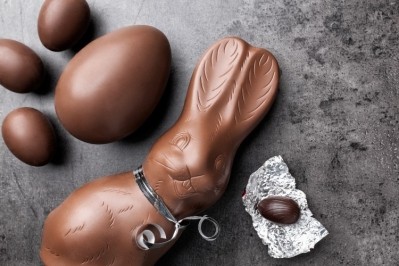Brexit
UK chocolate producers among hardest hit in post-Brexit exports to EU

Responding to a HM Customs and Revenue study, the Food and Drink Federation’s (FDF) monthly snapshot revealed chocolate exports fell from £41.4m to just £13m, a decline of 68%, while cheese exports in January tanked from £45m to £7m year on year, and whisky exports sank to £40m from £105m.
The FDF said the collapse in trade was down to a combination of Brexit and weaker demand in Europe, where restaurants, hotels and other hospitality outlets remain closed.
While pre-Brexit stockpiling and weak hospitality demand during the pandemic will have been a factor, the FDF said the change was also likely because of new non-tariff barriers that have hit smaller producers particularly hard.
Ongoing problems
Alistair Gower, Director of The Chocolate Tree, a small 100% organic Scottish company and pioneer of the craft chocolate movement, told ConfectioneryNews: “We have ongoing problems, we’re nearly at Easter and we are still suffering from major problems from Brexit.
“We have yet to successfully complete a shipment to the EU since Brexit, despite demand being incredibly high for our chocolate in the EU – specifically Germany, Holland, France and Spain.”
Gower said that through hard work building up the business in Europe over the past six years, exports to the EU account for 35% of Chocolate Tree’s sales and therefore a significant part of the business.
He said almost overnight, his trade with Europe has been ripped from underneath him because of red tape and not only is it having an effect on turnover, but also company moral.
“As an ethical, organic certified chocolate company we seem to have been penalised even more than if we were a conventional chocolate company. Because we are working to ethical standards the red tape is a lot more than if we were a conventional chocolate company and a lot of people don’t know that, and it’s a really important point,” he stressed.
Dominic Goudie, Head of International Trade at FDF, said: "It is extremely worrying that our exports to the EU have fallen by more than 75% in January. Businesses face significant challenges when trading with the EU and small businesses in particular have been shut out because groupage distribution is not working. In the absence of solutions, EU exporters will face much the same difficulties when the UK’s full border operating model enters into force in 2022.
"It is clear that the terms of the Trade and Cooperation Agreement (TCA) will not change and businesses face unavoidable changes to the terms of trade. However, there are opportunities to address the implementation of the deal. The EU-UK Partnership Council and its Trade Specialised Committees should be convened as a matter of urgency to put in place solutions that deliver the TCA’s aim of enhancing the ability of small businesses to benefit from trade."
Gower said as an example, The Chocolate Tree's first palette to Holland since the end of the transition deal has taken seven weeks to arrive at its destination, in the meantime the company shipped one to Hong Kong, which took only four days.
“We are beginning to lose major European distribution customers – either because they don’t have the paperwork in place or they are getting tired … how can they continue doing business with the UK?”
Calum Haggerty, Director of Edinburgh-based Coco Chocolatier, said: "We feel lucky that our European customers are still placing the same amount of orders, and showing loyalty to our brand. However, since Brextit has been official, the paperwork required to ship orders to Europe has increased significantly, creating a lot more admin work when we ship to Europe. Our team are working very hard to keep up to date with all the changes and laws as they come in, and we are still proudly trading with Europe."
Trade route
The FDF reported the worst-hit trade route was to Ireland losing its place as the single biggest export market for Britain accounting for 5% of the overall trade compared with 18% in January 2020. The analysis was also backed up by figures released by Ireland’s Central Statistics Office released last week.
Exports to Germany and Italy were close behind, down 85% and 81% respectively.
Products imported from the EU also fell in January 2021 compared to the same period in 2020, the FDF revealed, with chocolate down from -10.8% from £111.6m to £99.5m; wine down 19.7% from £135.6m to £108.9m; and Cheese falling -30.5% from £124.8m to£86.7m.
Latest figures released on 12 March from the government’s Office of National Statistics’ (ONS), showed UK exports of goods to the EU fell by 40.7% in January, the biggest monthly decline in British trade for more than 20 years.
But its latest report also revealed that despite the slow start for trade in January 2021, data from the Business insights and impact on the UK economy suggests that importing and exporting began to increase towards the end of January.
“The proportion of businesses reporting that they were unable to export decreased by 5.4 percentage points between the reporting periods 11 January to 24 January and 25 January to 2 February. Similarly, the proportion of businesses reporting they were unable to import decreased by 3.0 percentage points between the same reporting periods,” the ONS said.






